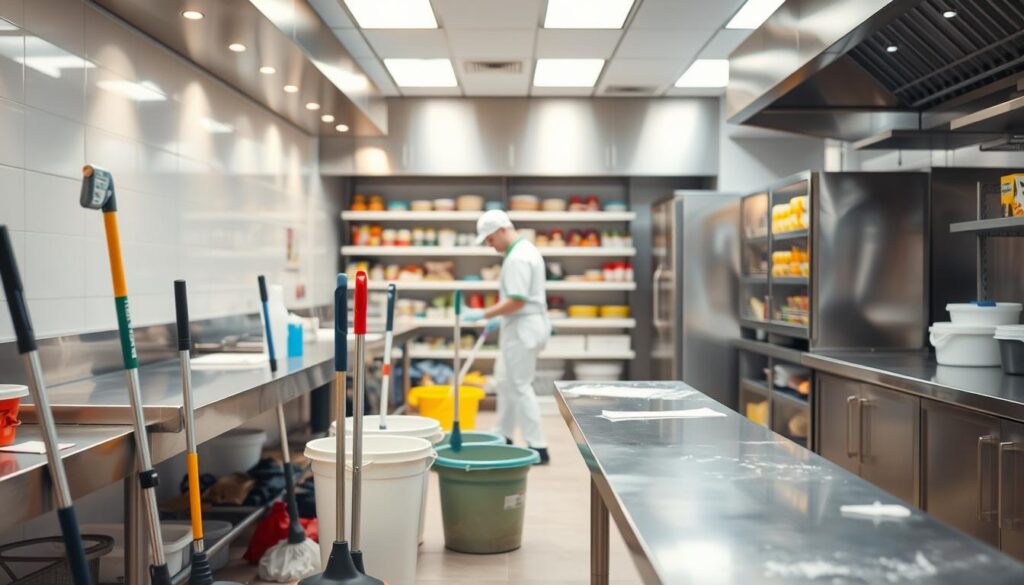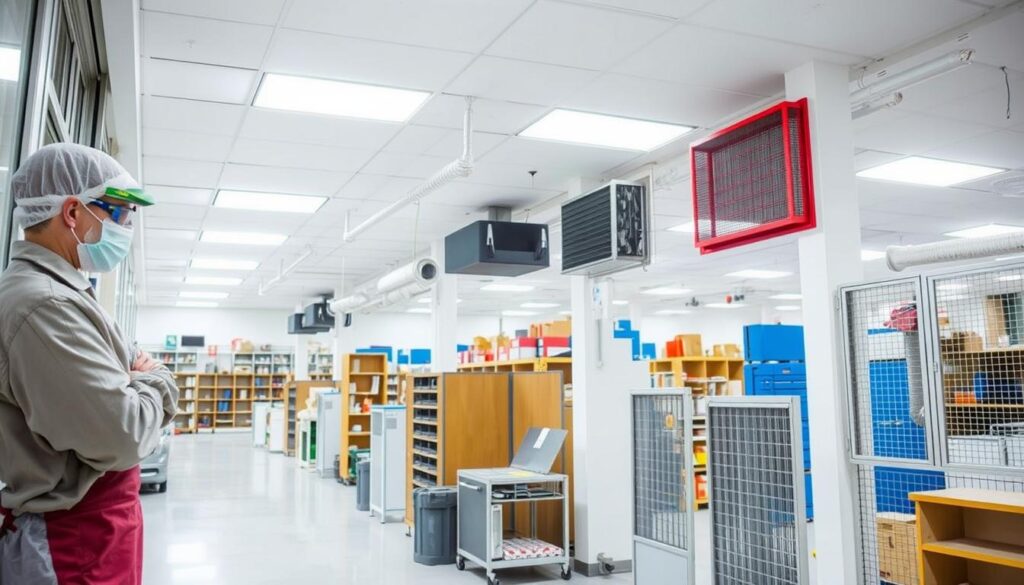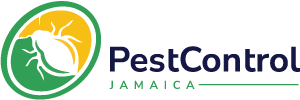Did you know that infestations cost Jamaican businesses millions annually? In a tropical climate like Jamaica’s, pests thrive year-round, posing significant risks to operations and reputations. From rodents to termites, these unwelcome guests can disrupt daily activities and even lead to legal issues under the Public Health Act.
Proactive measures are essential to safeguard your business. Partnering with certified professionals who understand local challenges can make all the difference. A six-step strategy combining prevention and expert intervention ensures long-term protection. For example, a Montego Bay hotel successfully eliminated recurring issues by adopting Integrated Pest Management (IPM) tailored to the Caribbean environment.
Investing in reliable pest control services isn’t just about solving problems—it’s about preventing them. By staying ahead of potential threats, businesses can focus on growth and customer satisfaction without unnecessary interruptions.
Key Takeaways
- Jamaica’s tropical climate increases the risk of pest infestations.
- Infestations can lead to financial losses and reputational damage.
- Proactive strategies are more effective than reactive solutions.
- Certified professionals offer tailored solutions for local challenges.
- IPM strategies are ideal for Caribbean environments.
1. Conduct Regular Inspections for Early Detection
Regular inspections are a cornerstone of effective property protection. In Jamaica’s humid and warm climate, infestations can escalate quickly, making early detection vital. Quarterly checks by certified professionals ensure potential issues are identified before they become major problems.
Why Regular Inspections are Crucial
Inspections help maintain health safety and protect your property. Exterminators focus on hard-to-reach areas, spotting early signs like droppings, frass, or grease marks. For example, a Kingston warehouse saved $15,000 by detecting termites early through thermographic camera use.
How to Identify Common Pest Entry Points
Understanding where pests enter is key. In Caribbean businesses, common entry points include roof vents, drainage gaps, and loading docks. Data shows 68% of infestations start at loading docks, making these areas high-risk zones.
Here’s a 7-point inspection checklist for Jamaican businesses:
- Check roof vents and drainage systems.
- Inspect loading docks and storage areas.
- Look for cracks and crevices in walls.
- Use thermographic cameras for termite detection.
- Ensure compliance with Jamaican building codes for pest barriers.
- Train staff to recognize signs of infestations.
- Use digital reporting apps for audit trails.
By adopting these practices, businesses can stay ahead of potential threats and maintain a safe environment.
2. Implement Strict Sanitation Practices
A clean environment is your first line of defense against infestations. In Jamaica’s tropical climate, proper hygiene is essential to keep unwanted visitors at bay. By adopting strict sanitation practices, businesses can create a safer and healthier space for employees and customers.

Daily Cleaning Routines to Prevent Pests
Daily cleaning routines are a must for businesses, especially in the food industry. Customized protocols tailored to Jamaican needs can make a significant difference. For example, transferring cereals to sealed containers and using mesh screens can prevent rodents from accessing food supplies.
Here are some effective cleaning tips:
- Follow NSF-approved sanitation schedules.
- Maintain grease traps regularly, especially for jerk chicken restaurants.
- Use color-coded cleaning tools to avoid cross-contamination.
Proper Waste Management to Deter Infestations
Waste management is another critical aspect of sanitation. In Jamaica, where waste collection can be challenging, businesses must take extra steps to manage trash effectively. Using insect-resistant dumpsters with locking lids can prevent pests from accessing waste.
Consider these waste management strategies:
- Schedule outdoor cleaning during moonless nights to reduce insect activity.
- Install baited floor drain covers in bar areas to deter pests.
- Use Jamaican-approved eco-cleaners for sustainable sanitation.
| Cleaning Tool | Purpose |
|---|---|
| Color-coded brushes | Prevent cross-contamination in food areas |
| Sealed containers | Store cereals and grains safely |
| Eco-cleaners | Provide sustainable sanitation solutions |
By implementing these practices, businesses can maintain a clean and healthy environment, reducing the risk of infestations and ensuring compliance with local health standards.
3. Seal Entry Points and Vulnerable Areas
Unwanted intruders often find their way through small gaps. In Jamaica’s tropical climate, sealing entry points is critical to keeping your property safe. Even the tiniest crack can provide access to pests, leading to costly damage and health risks.

Identifying and Sealing Cracks and Crevices
Start by inspecting your property for cracks and crevices. Common areas include walls, foundations, and utility lines. Jamaican-made sealants, resistant to tropical storms, are ideal for this task. A 2023 UWI study found that Aedes aegypti mosquitoes often enter through gaps as small as 0.6cm.
Here are some effective sealing tips:
- Use copper mesh or steel wool for rodent-proofing.
- Install termite shields in foundations to block access.
- Maintain hurricane shutters to prevent gaps.
Using Weatherstripping to Secure Doors and Windows
Doors and windows are common entry points for pests. Weatherstripping is a simple yet effective solution. Self-closing doors and louver window sealing kits are particularly useful in Jamaican architecture.
For example, an Ocho Rios resort reduced pest issues by 80% after implementing these measures. Here’s a comparison of sealing materials:
| Material | Best Use |
|---|---|
| Copper Mesh | Rodent-proofing small gaps |
| Steel Wool | Temporary sealing for cracks |
| Weatherstripping | Doors and windows |
By sealing vulnerable areas, you can protect your property from commercial pest issues and ensure long-term safety.
4. Set Up Preventative Maintenance Programs
Preventative maintenance is a game-changer for long-term property safety. By combining barrier sprays, traps, and integrated pest management techniques, business owners can protect their investments and avoid future infestations. Tailored strategies are especially crucial in Jamaica’s tropical climate, where pests thrive year-round.
Barrier Sprays and Traps for Long-Term Protection
Barrier sprays and traps are essential tools in any maintenance program. Chemical options like pyrethroids offer quick results, while natural alternatives such as Sargassum-based repellents are eco-friendly and effective. Recent trials in Jamaica have shown that Sargassum extracts reduce mosquito populations by up to 70%.
Traps, including pheromone and UV light models, are another powerful solution. Proper placement is key—strategically positioning traps near entry points and high-risk areas maximizes their effectiveness. For example, a Negril golf course reduced its pest issues by 90% using a combination of barrier sprays and pheromone traps.
Integrated Pest Management (IPM) Techniques
IPM combines multiple pest control methods to create a sustainable, long-term solution. This approach minimizes pesticide use while addressing the root causes of infestations. A 12-month IPM calendar tailored to tropical climates ensures year-round protection.
Here’s a breakdown of effective IPM strategies:
- Use CARPHA-approved biological controls like nematodes and fungi.
- Implement hurricane season preparation checklists to secure properties.
- Train staff to identify and report early signs of infestations.
| Method | Best Use |
|---|---|
| Barrier Sprays | Quick, targeted protection |
| Pheromone Traps | Monitoring and reducing specific pests |
| Biological Controls | Sustainable, long-term solutions |
By adopting these integrated pest management techniques, businesses can stay ahead of potential threats and ensure a safer environment for everyone.
5. Train Employees on Pest Prevention and Reporting
Empowering your team with the right knowledge can transform your property’s safety. In Jamaica’s tropical climate, employee training is essential to maintain health safety and prevent issues. By educating staff and establishing a robust reporting system, businesses can stay ahead of potential threats.
Educating Staff on Pest Control Best Practices
Training programs tailored to Jamaican needs are highly effective. For example, adopting KFC-style “CHAMPS” training ensures consistency and quality. Multilingual materials cater to diverse teams, while role-playing scenarios prepare staff for real-life situations.
Here are some key training components:
- Demonstrate digital reporting app walkthroughs for seamless documentation.
- Share Sandals Resorts’ employee incentive program to boost engagement.
- Provide 5 common Jamaican pest identification guides for quick reference.
Establishing a Reporting System for Pest Sightings
A clear reporting system ensures swift action. Digital tools streamline the process, while escalation protocols address vector sightings promptly. Incident documentation templates maintain accountability and compliance with health safety standards.
Consider these steps for an effective system:
- Create a “Pest Spotter” certification program to recognize trained employees.
- Integrate reporting with HACCP plans for food-related businesses.
- Use role-playing scenarios to train host staff on reporting procedures.
“A well-trained team is the backbone of any successful prevention strategy.”
| Training Element | Purpose |
|---|---|
| Multilingual Materials | Cater to diverse staff |
| Digital Reporting Apps | Streamline documentation |
| Incentive Programs | Boost employee engagement |
By investing in employee training and reporting systems, businesses can create a proactive culture that prioritizes health safety and minimizes risks.
6. Partner with a Professional Pest Control Company
Collaborating with experts ensures your property remains safe and secure. In Jamaica’s tropical climate, pest control services are essential for maintaining a healthy environment. By partnering with certified professionals, you can prevent long-term costs and ensure compliance with local regulations.
Benefits of Seasonal Pest Control Programs
Seasonal programs offer proactive protection tailored to Jamaica’s unique challenges. These programs address specific threats during different times of the year, such as increased mosquito activity during the rainy season. For example, Appleton Estate reduced its commercial pest issues by 75% through a customized seasonal plan.
Here are some key advantages:
- Prevent infestations before they escalate.
- Reduce long-term costs with proactive measures.
- Ensure compliance with JEPA certification requirements.
Choosing the Right Pest Control Service for Your Business
Selecting the right provider is crucial for effective results. Look for companies with JEPA certification and a proven track record in Jamaica. Consider their emergency response SLAs and whether they offer green service options for eco-resorts.
Here’s a comparison of top Jamaican providers:
| Company | Specialization | Key Feature |
|---|---|---|
| PestPro Jamaica | Commercial Properties | 24/7 Emergency Response |
| EcoShield Pest Solutions | Eco-Friendly Services | Sargassum-Based Repellents |
| SafeSpace Pest Control | Tourism Industry | Tourism Board Compliance |
By vetting providers thoroughly and negotiating service contracts, you can ensure your property remains protected year-round.
Conclusion
Taking proactive steps ensures long-term safety and operational efficiency. By following the 6-step plan tailored to Jamaica’s unique challenges, you can protect your property and maintain a healthy environment. Preventive measures not only save costs but also safeguard your reputation and health standards.
Investing in professional control services today is a smart move. With the upcoming Jamaican Pest Control Summit, now is the perfect time to explore innovative solutions. Be prepared for 2024 dengue projections by implementing a combination of strategies.
Ready to take action? Request a free facility assessment and download our success metric tracking template. Together, we can protect Jamaica’s tourism reputation and ensure a safer future for all.

